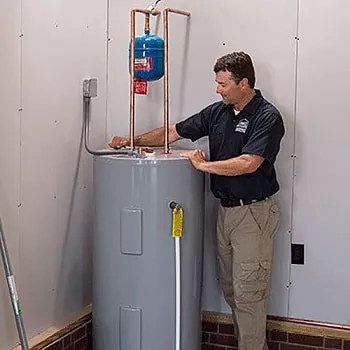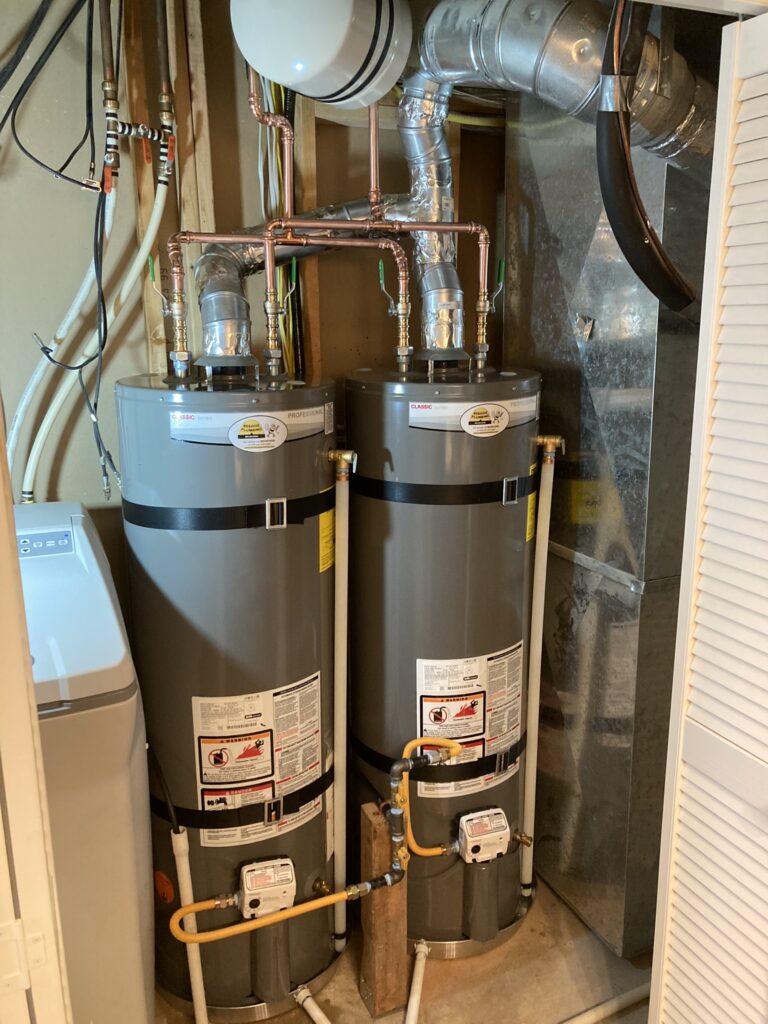Comprehensive Drain Cleaning Services to Ensure Healthy Plumbing
Comprehensive Drain Cleaning Services to Ensure Healthy Plumbing
Blog Article
Total Guide to Water HeaterSetup and Substitute
Comprehending the ins and outs of water heating unit setup and substitute is crucial for homeowners seeking to make sure performance and reliability in their hot water supply. From picking the ideal type and size to carrying out a seamless installation process, a number of factors have to be considered to stay clear of usual challenges.
Sorts Of Water Heating Systems
When thinking about water heating unit installment and substitute, it is vital to recognize the different types of water heating systems readily available in the market. One of the most common types consist of tank hot water heater, tankless hot water heater, heat pump water heating units, and solar water heating systems.
Container hot water heater are standard systems that keep a particular quantity of warm water, making them conveniently offered when needed. They are normally less pricey in advance yet might incur greater energy expenses in time because of warmth loss. In contrast, tankless water heaters supply warm water as needed, eliminating the need for storage space. They are energy efficient and can conserve area, yet their initial costs are commonly higher.
Heatpump hot water heater make use of electrical power to move warmth from the air or ground to heat water, providing significant power financial savings however requiring more room and particular installation conditions. Solar water heating systems harness solar power to heat water, giving a green choice with prospective lasting cost financial savings, although they usually require a back-up system for gloomy days.
Understanding these alternatives makes sure notified choices relating to installment and substitute, dealing with specific demands and choices.
Selecting the Right Size
Picking the proper dimension for a hot water heater is vital to make sure optimum performance and performance. A device that is too tiny will struggle to fulfill house demands, leading to inconsistent warm water accessibility and enhanced power usage. Conversely, a large hot water heater can result in unneeded power waste and greater utility expenses.
To identify the best dimension, think about the family's optimal warm water usage. This can be determined based upon the variety of residents and their typical warm water demands. As an example, a family of four might require a hot water heater with a capability of 50 to 80 gallons, relying on the usage patterns, such as simultaneous showers and laundry.
In addition, examine the recovery price, which gauges exactly how quickly a heater can replenish warm water after it has actually been made use of. For tankless versions, concentrate on the circulation rate, measured in gallons per min (GPM), to guarantee it satisfies the home's synchronised demand.

Installation Process Review

Following, the old system has to be detached and gotten rid of, making sure to adhere to regional codes and policies regarding disposal. As soon as the old device is out, the new water heating system can be placed in area. This action involves attaching the supply of water lines, guaranteeing that all installations are leak-free and safe.
After developing water links, it's important to link the power supply, whether electric or gas, adhering to the maker's guidelines thoroughly. As soon as all links are made, the system must be full of water, and the power can be transformed back on. Finally, it is essential to look for leakages and guarantee the water heater is functioning correctly prior to finishing the setup procedure.
Usual Installation Blunders

One more regular blunder is disregarding to comply with local codes and guidelines. Failing to follow these standards can not only result in safety threats but may likewise lead to costly fines or the need for expensive reinstallation. Furthermore, inappropriate venting is an essential concern. Inadequate air flow can create dangerous gas build-up, posturing severe wellness dangers.
Inaccurate pipes links are likewise a common error. Stopping working to protect links or utilizing the wrong kind of fittings can bring about leakages and water damage. In addition, neglecting the importance of a correct drain pan can lead to considerable water damage if leakages do happen. Finally, inadequate insulation webpage of pipelines can bring about warmth loss, reducing efficiency. By staying clear of these common installment mistakes, homeowners can guarantee their hot water heater operates securely and successfully, making the most of efficiency and long life.
Maintenance Tips for Longevity
Correct maintenance of a water heating unit is essential for its longevity and optimum performance. Routine examinations and maintenance can stop costly repair services and prolong the appliance's life expectancy. Begin by inspecting the temperature level setting; it must commonly be established between 120 ° F and 140 ° F for optimum power efficiency and safety and security.
Every six months, purge the storage tank to get rid of debris build-up, which can impair home heating efficiency and create deterioration. To do this, switch off the heating unit, connect a tube to the drain valve, and let the water run up until it is clear.
Anode poles ought to be inspected yearly and changed when they are rusted. These rods help avoid tank rust by drawing in harsh elements in the water.
Furthermore, check the pressure safety valve routinely to guarantee it is working properly. This shutoff is important for avoiding excessive pressure buildup within the tank.
Finally, consider scheduling an expert maintenance check every few years for comprehensive assessments and maintenance. By sticking find more info to these maintenance pointers, house owners can considerably enhance the performance, safety and security, and life expectancy of their water heating units, making sure trusted warm water for years to come.
Final Thought
Finally, correct installation and upkeep of water heating systems are important for making sure efficiency and durability (drain cleaning). Choosing the ideal kind and size, adhering to installation standards, and preventing typical errors dramatically contribute to optimum performance. Regular maintenance checks and professional servicing assistance sustain capability and protect against expensive repair services. By understanding these vital facets, home owners can accomplish a reliable warm water supply while lessening potential problems connected to water heater procedure.
Comprehending the intricacies of water heating system installation and replacement is vital for homeowners seeking to make certain performance and dependability in their warm water supply.Storage tank water heaters are standard systems that store a specific volume of warm water, making them easily available when needed. In contrast, tankless water heating systems provide hot water on demand, eliminating the requirement for storage space. Selecting a water heating unit that is either also small or also huge can lead to ineffectiveness, resulting in insufficient warm water supply or too much energy intake.
By comprehending these crucial aspects, house owners can accomplish a trusted warm water supply while minimizing prospective concerns connected go to the website to water heater operation. gas leak repair.
Report this page